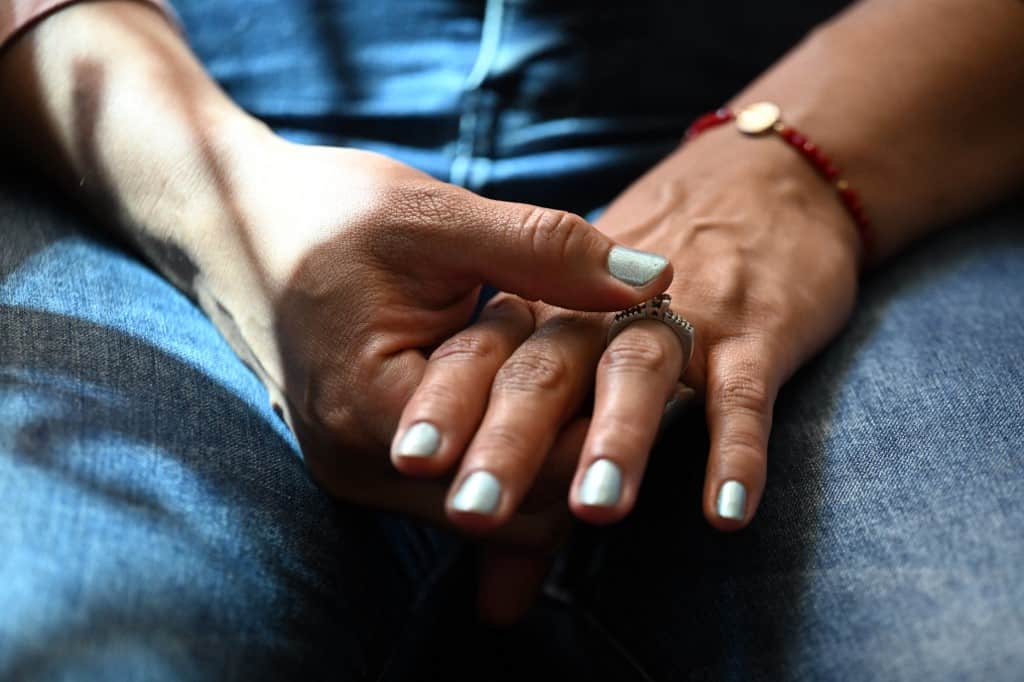Esperanza Martinez lost three relatives who were murdered and saw numerous bodies left in the streets of her neighborhood, a former stronghold of the notorious MS-13 street gang in El Salvador. While she has lived more peacefully lately, she remains on alert: gang members are “hidden, but still there,” she whispered.
The 10 de Octubre neighborhood of San Marcos near the Salvadoran capital has been transformed in the three years since President Nayib Bukele launched a “war” on gangs that had made the Central American nation one of the most violent in the world. Today, at lunchtime, buyers bustle in front of market stalls, a motorcyclist makes food deliveries, and a woman sits in the back of a dilapidated pickup truck selling slushies.
It is a scene that was unthinkable just a few years ago, when no intruders were tolerated in the vast areas of El Salvador controlled by Mara Salvatrucha — commonly known as MS-13 — and rival gang Barrio 18. “Many people entered here and never left. I saw dead people lying there, shot or stabbed. There’s a clandestine cemetery on the hill,” said Martinez, who has spent 34 of her 65 years in the neighborhood.
Law-abiding residents had to lock themselves indoors at night, she recalled. Her 12-year-old niece was murdered for refusing to become a gang member, her mother suffered the same fate for trying to defend her, and her sister’s husband was killed for not paying an extortion demand.
One of Martinez’s three daughters emigrated to the United States at the age of 17 to escape death threats.
Murals replace graffiti
The 10 de Octubre neighborhood was once ruled by Elmer Canales Rivera, nicknamed “Hollywood Crook,” one of the leaders of MS-13 who is now in the United States awaiting trial. On the walls, “MS” or “Hollywood” graffiti has been replaced by murals of balloons, butterflies and multicolored flowers.
A giant “N” on a sky-blue background refers to both Bukele (by his first name) and his New Ideas party. The 10 de Octubre neighborhood is one of 11 areas placed under military protection by Bukele following the March 2022 declaration of a state of emergency that led to the arrest of 87,000 people without the need for warrants.
“We will flush out every last hidden terrorist,” the president recently promised as his security forces surrounded a district on the outskirts of San Salvador where officials said gang members were trying to regroup. While there is a risk of the gangs making a comeback, the show of force also reflects Bukele’s desire to keep playing “an important public role,” said Jose Miguel Cruz, an expert on Salvadoran gangs at Florida International University.
Bukele, who began a second presidential term in June 2024, rejects accusations of authoritarianism and claims to have made El Salvador “the safest country in the world.” His harsh crackdown on criminal groups has led to a drastic drop in the homicide rate, making him popular at home.
Human rights organizations, however, have criticized his methods. Amnesty International and local non-governmental organizations such as Cristosal and Socorro Juridico denounce arbitrary arrests, acts of torture, the deaths of about 400 prisoners, and the incarceration of thousands of innocent people.
It is a topic no one wants to discuss in the 10 de Octubre neighborhood.
A little peace
At a roundabout where buses depart, Carlos Sanchez, a 48-year-old car washer, warned: “We mustn’t be careless.” “Today we have a little peace, but remnants (of gangs) are hidden in the hills,” he said.
MS-13, which has been declared a terrorist organization by the United States, and Barrio 18 controlled 85 percent of the national territory, lived off extortion and drug trafficking, and are estimated to have killed around 200,000 people over three decades, according to Bukele.
“One day, they stabbed a young man to death in a minibus. They wanted to kill my two daughters too because they refused to cooperate. Many complied for fear of reprisals. They used children as lookouts,” Sanchez said.
Gangsters also evicted families from their homes at gunpoint. “They wanted to take mine, but I managed to talk them out of it,” Antonia Alfaro, 67, said in her small home. “Some are still hanging around, but I have nowhere else to go.”






